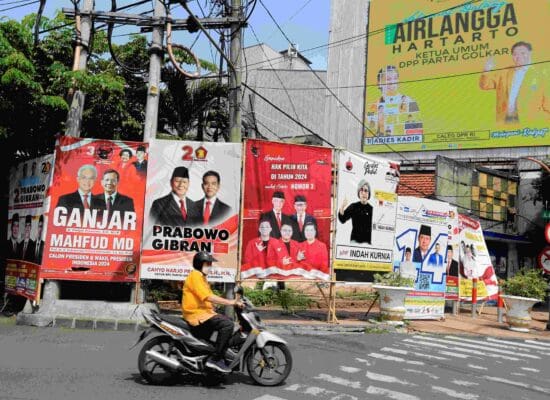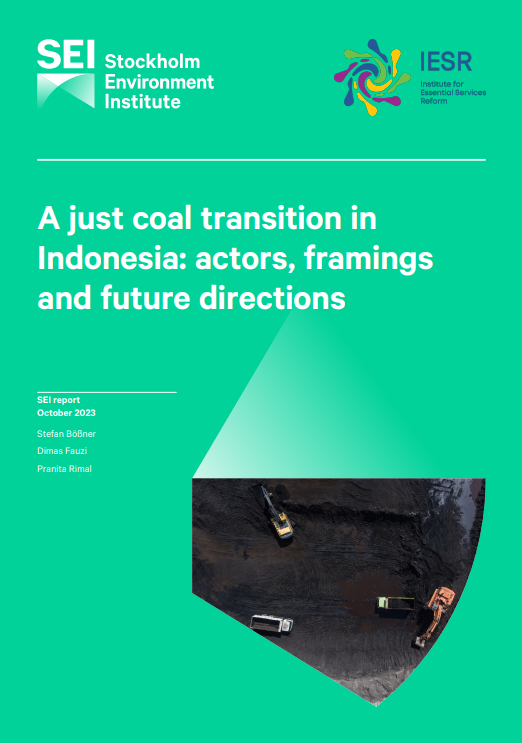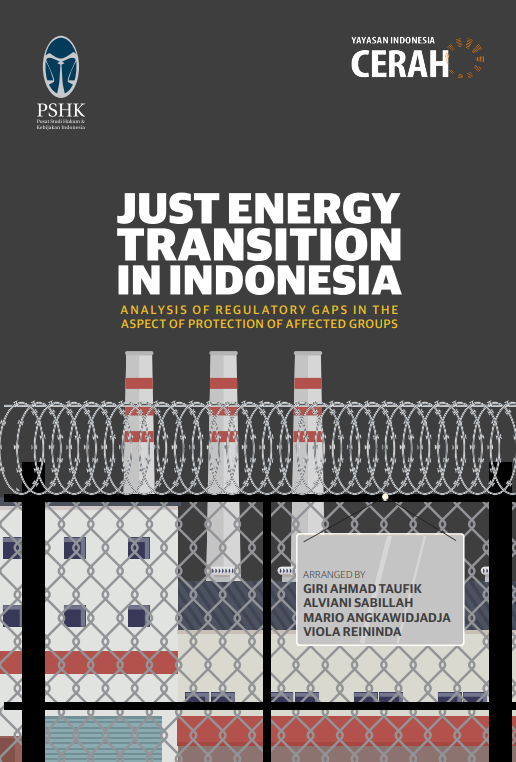Workshop
ILO Supports Indonesia to Move from Fossil Fuel to Renewable Energy
Through a series of training workshops on just energy transition, the International Labour Organization (ILO) is building the capacity of relevant stakeholders in economic transformation and development of human capital for new emerging sectors.
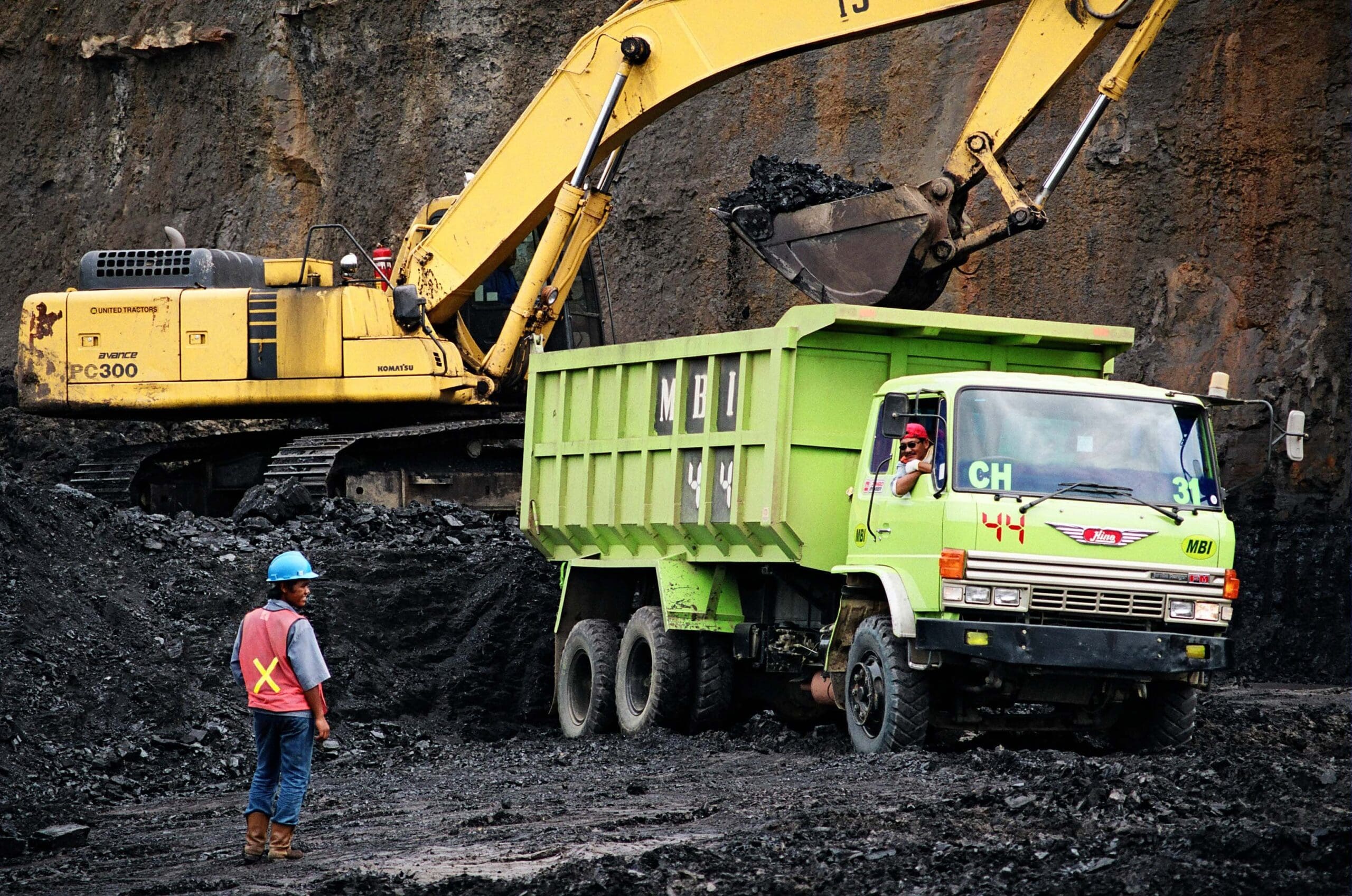
Indonesia is one of the largest producers and exporters of coal in the world. Recognising that the use of fossil fuels as a source of energy significantly contributes to greenhouse gas emissions and climate change, Indonesia has committed to achieving net-zero emissions by 2060 within the energy sector.
To support Indonesia’s commitment to reduce greenhouse gas emissions, the German government has funded a just energy transition project in Indonesia called the Innovation Regions for a Just Energy Transition (IKI JET) project. Implemented by the ILO, the project aims to build the capacity of different government offices—at both national and regional levels—in just energy transition through training programmes and workshops.
To date, the project has conducted a series of training sessions in three provinces—Yogyakarta, South Sumatra, and East Kalimantan—reaching a total of 62 government officials. Conducted from January to February 2024 with support from the ILO’s International Training Centre in Turin, the training programmes involved all relevant stakeholders representing governmental ministries, workers’ and employers’ organisations, civil society organisations, and research centres, as well as the IKI JET consortiums.
The ILO supports its social partners in Indonesia to strengthen the capacity of relevant stakeholders, establish a regional consultation forum, and encourage policy formulation and planning for an economic transformation.
During the training workshops, the participants learned that the just energy transition is helping to promote the economic transformation that will encourage new emerging economic sectors. They also learned how to contribute to overcoming the new challenges brought by the just transition on the development of competent human capital for these new sectors.
Yoyon Artino, an instructor in one of the vocational training centres in South Sumatra, stated that the training programme had given him more insight into how his institution could contribute to a just transition in his province. “Upskilling and reskilling are important and needed by workers to transform into renewable sector or other potential economic sectors. Thus, vocational training centres play a great role in realising the skills transformation,” he said.
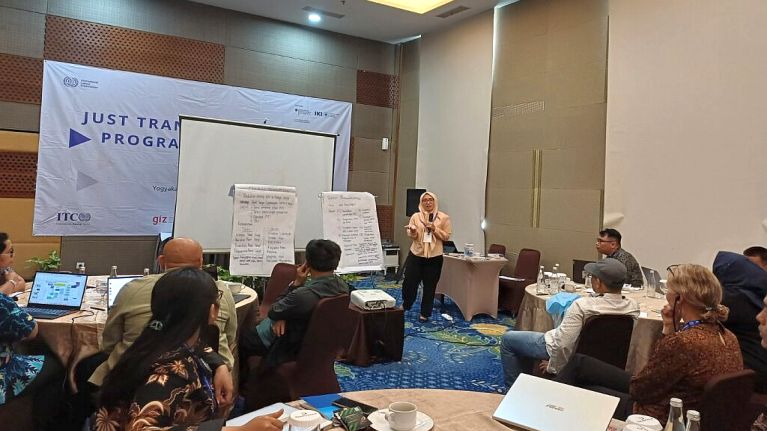
Meanwhile, Agus Taswanto from the Provincial Planning and Development Agency (Bappeda) of East Kalimantan said that Bappeda plays a very instrumental role in the just energy transition for East Kalimantan, particularly in planning the economic transformation. “I learned different elements that just transition entails, which is not only the environmental aspects. We also need to look at other aspects, such as gender, labour rights, social security, skills development, social dialogue, and financing.”
The training programmes concluded with the commitment from the participants to provide a practical orientation to the government ministries and other social partners, with some specific options for how to formulate, implement, and monitor the policy framework in accordance with national circumstances and priorities.
“The ILO through this just transition project will continue supporting Indonesia to move from coal to renewable energy and other sustainable economic activities. The ILO supports its social partners in Indonesia to strengthen the capacity of relevant stakeholders, establish a regional consultation forum, and encourage policy formulation and planning for an economic transformation,” concluded Muce Mochtar, ILO’s Project Officer on Just Energy Transition.
This piece was written by the ILO and co-published by the Just Energy Transition in Coal Regions Knowledge Hub as part of the IKI JET Project.
Stay Informed and Engaged
Subscribe to the Just Energy Transition in Coal Regions Knowledge Hub Newsletter
Receive updates on just energy transition news, insights, knowledge, and events directly in your inbox.
